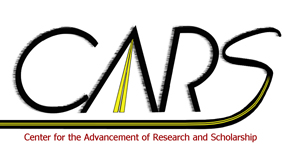A Multidisciplinary Lens
Location
Hart 114
Start Time
15-5-2014 10:10 AM
End Time
15-5-2014 11:10 AM
Description
Digital Microscopic Photography and Numismatic Research: The View from Corinth
Dr. Michael Ierardi
In the 2012/3 funding cycle CARS purchased a Dynolite digital handheld microscopic camera to facilitate my research work in the coin room in the museum at Ancient Corinth. This paper illustrates the applications of the camera to a series of problems, ranging from the fairly specific to the general: identification of a barely legible medieval German coin; a typological study of the long-lived late Classical Pegasus/Trident series; coin iconography as evidence for cultural history and civic identity in the high Roman Empire; and using the mint control marks on coins struck as provision allowance for the Macedonian occupying garrison to reconstruct of a lost episode in the political economy of early Hellenistic Greece.
International Financial Reporting Standards Without an International Financial Reporting Language: Evidence of Information Asymmetry in the European Union
Dr. Mark Crowley
Since 2005, companies in the European Union (EU) are required by Regulation 1606/2002 to prepare financial statements in accordance with IFRS; however, these listed companies are not required to prepare financial statements and disclosures in an International Financial Reporting Language (IFRL) or lingua franca. We question whether firms that file IFRS financial statements only in the local language but not in English, the IFRL or lingua franca, limit the benefits of IFRS; whereas, companies that also file in English reduce information asymmetry and increase the effectiveness of IFRS as a global informational tool. This paper examines annual filings from 6,000 listed companies in the European Union (EU) for the years 2009 and 2012. We found that approximately 60 percent of companies from non-English speaking countries file in their local language and voluntary disclose in English; while 40 percent report only in their native languages. Our research suggests that until international companies adopt English as the International Financial Reporting Language (IFRL) the full benefit of complying with IFRS will not be recognized.
Exemplar or Empire: McKinley, Bryan, and the Philippines in the 1900 Presidential Election
Dr. Jason Edwards
This particular project focused on how William Jennings Bryan and President William McKinley articulated what America’s role in the world should be. Specifically, I examined Bryan’s 1900 Acceptance Address of the Democratic Nomination, while exploring several addresses made by President McKinley late in 1899 and early 1900. I argue that William Jennings Bryan’s rhetoric represents the classical position within American foreign policy that the United States best influences the affairs of the world by focusing on perfecting its domestic institutions at home, while not directly involving itself with other nations. President McKinley’s rhetoric represents a new and updated position that the United States best exemplifies its greatness by direct involvement with the world and other nations. This particular project is part of a larger book I am developing tracing the historical debates over America’s development from an exemplar nation to one that emphasizes empire and direct involvement with the world.
A Multidisciplinary Lens
Hart 114
Digital Microscopic Photography and Numismatic Research: The View from Corinth
Dr. Michael Ierardi
In the 2012/3 funding cycle CARS purchased a Dynolite digital handheld microscopic camera to facilitate my research work in the coin room in the museum at Ancient Corinth. This paper illustrates the applications of the camera to a series of problems, ranging from the fairly specific to the general: identification of a barely legible medieval German coin; a typological study of the long-lived late Classical Pegasus/Trident series; coin iconography as evidence for cultural history and civic identity in the high Roman Empire; and using the mint control marks on coins struck as provision allowance for the Macedonian occupying garrison to reconstruct of a lost episode in the political economy of early Hellenistic Greece.
International Financial Reporting Standards Without an International Financial Reporting Language: Evidence of Information Asymmetry in the European Union
Dr. Mark Crowley
Since 2005, companies in the European Union (EU) are required by Regulation 1606/2002 to prepare financial statements in accordance with IFRS; however, these listed companies are not required to prepare financial statements and disclosures in an International Financial Reporting Language (IFRL) or lingua franca. We question whether firms that file IFRS financial statements only in the local language but not in English, the IFRL or lingua franca, limit the benefits of IFRS; whereas, companies that also file in English reduce information asymmetry and increase the effectiveness of IFRS as a global informational tool. This paper examines annual filings from 6,000 listed companies in the European Union (EU) for the years 2009 and 2012. We found that approximately 60 percent of companies from non-English speaking countries file in their local language and voluntary disclose in English; while 40 percent report only in their native languages. Our research suggests that until international companies adopt English as the International Financial Reporting Language (IFRL) the full benefit of complying with IFRS will not be recognized.
Exemplar or Empire: McKinley, Bryan, and the Philippines in the 1900 Presidential Election
Dr. Jason Edwards
This particular project focused on how William Jennings Bryan and President William McKinley articulated what America’s role in the world should be. Specifically, I examined Bryan’s 1900 Acceptance Address of the Democratic Nomination, while exploring several addresses made by President McKinley late in 1899 and early 1900. I argue that William Jennings Bryan’s rhetoric represents the classical position within American foreign policy that the United States best influences the affairs of the world by focusing on perfecting its domestic institutions at home, while not directly involving itself with other nations. President McKinley’s rhetoric represents a new and updated position that the United States best exemplifies its greatness by direct involvement with the world and other nations. This particular project is part of a larger book I am developing tracing the historical debates over America’s development from an exemplar nation to one that emphasizes empire and direct involvement with the world.

Comments
Moderator: Dr. Lee Mondshein